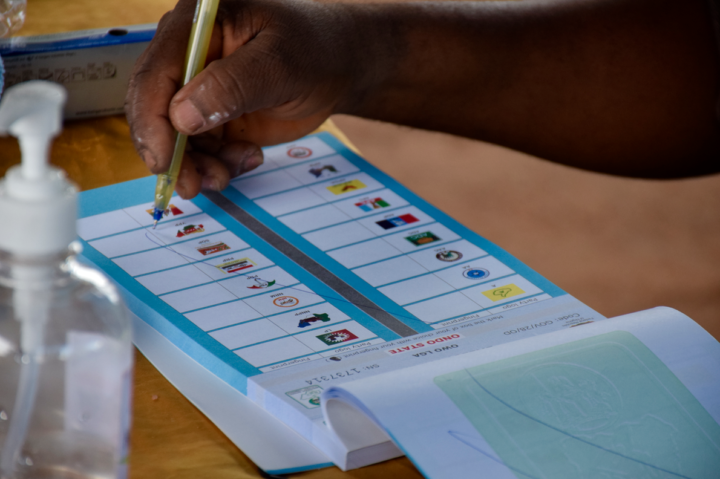BY DAVID BASSEY ANTIA
In a paper delivered at the National Institute for Policy and Strategic Studies, Kuru, in August 2023, the inspector-general of police, Kayode Egbetokun, revealed a sobering truth when he said that the Nigeria Police Force requires an additional 190,000 officers to effectively secure the country.
How critical is this shortfall? Consider the current ratio of approximately 1 police officer to 650 Nigerians. This figure falls far below the UN-recommended threshold of 1:460. And how dire is the situation? As of June 2024, Nigeria boasts roughly 370,000 police officers. Yet, a significant number of them are deployed to guard the political and privileged class, leaving an alarmingly small fraction to shoulder the enormous burden of securing over 200 million Nigerians. It borders on absurdity—a tragic theatre of the state. Nothing could be more mournful.
It does not take a legal scholar or a security analyst to deduce that the systemic shortage of manpower and the insufficient supply of equipment have left the Nigeria Police Force struggling under the weight of its constitutional responsibilities. This institutional ineffectiveness becomes even more pronounced against the backdrop of the persistent, bloody conflict between farmers and herders. The statistics are staggering. In the first half of 2018 alone, the conflict claimed 1,300 lives and displaced hundreds of thousands. Insecurity is no longer episodic; it has become structural.
Advertisement
The formation of Amotekun—Operation Amotekun was not an act of rebellion; it was a cry for survival. The Southwest could not afford to continue burying its sons and daughters in the face of a federal security architecture that appeared either overwhelmed or indifferent. One cannot forget October 2019, when Funke Olakunrin, daughter of Yoruba elder statesman Pa Reuben Fasoranti, was brutally murdered in broad daylight along the Ore highway. To this day, there is no conclusive police report on that case.
If someone of such standing could be so casually extinguished without a serious investigative response, what hope is there for the ordinary citizen? The tragic silence of the Police Force forced the hands of the people into action for their own safety.
Accordingly, Ekiti State enacted a law establishing the Ekiti State Security Network Agency and Amotekun Corps—to aid in the preservation of law and order. Other states followed: Oyo, Ogun, Ondo, Osun, and Lagos. The Oyo State Security Network Agency Law, 2020, under Section 5(c), expressly empowers Amotekun to collaborate with similar agencies across the region in combating kidnapping, terrorism, cattle rustling, destruction of farmlands, criminal damage, and other offences. It also mandates the Corps to assist the police and other law enforcement agencies in apprehending criminals.
Advertisement
Unsurprisingly, the birth of these regional outfits has sparked a wave of legal debates with an outbreak of many interpretations and misinterpretations.
Some applaud it as a constitutional evolution; others decry it as a contravention of Nigeria’s federalism and unitary leaning. I am unequivocal of the view that the Nigerian Constitution not only permits but, indeed, encourages such state-level security initiatives. Let us now pontificate on the legality of such a security outfit.
A common argument which has been canvassed against the legality of these security outfits is anchored in Section 214(1) of the Constitution, which establishes the Nigeria Police Force and prohibits the establishment of “any other police force” for the Federation or any part thereof. I contend that this provision has been misread and overstretched.
The Constitution does not define what qualifies as a “police force,” and there is no basis to interpret that phrase as precluding the establishment of complementary security agencies by sub-national governments.
Advertisement
Section 4 of the Police Act spells out the general duties of the police: the prevention and detection of crime, the apprehension of offenders, the preservation of law and order, the protection of life and property, and the enforcement of laws.
Importantly, it mandates the police to adopt community partnership in the discharge of its responsibilities and to work in conjunction with other law enforcement agencies. Nowhere in the Act is the police described as the exclusive security agency in Nigeria. On the contrary, by its own wording, the police is the principal law enforcement body—acknowledging the existence and necessity of others.
And others do exist. The NSCDC, DSS, EFCC, and DIA, to mention but a few, all perform security functions. These agencies did not fall from the sky; they were birthed by law—federal law.
Why then should states be denied the constitutional space to do the same within their own jurisdictions?
Advertisement
Another argument against Amotekun and similar agencies is that they allegedly contravene Section 227 of the Constitution, which forbids associations from equipping persons to further political aims. But this argument collapses under basic constitutional hermeneutics. Section 227 is housed under the heading “Political Parties” and must be interpreted in that light. Amotekun is not a political militia; it is a statutory security apparatus established by law, operating transparently with state oversight, and mandated to serve the public interest—not a political agenda.
Moreover, the states comprising Amotekun are not united by political party. But even if they were politically aligned, the mere coincidence of political affiliation does not amount to political conspiracy. For such an argument to stand, there must be a demonstrable use of a political platform to promote the agenda—which simply does not exist in the case of Amotekun.
Advertisement
Now to the constitutional bedrock. Section 14(2)(b) of the Constitution affirms that the security and welfare of the people shall be the primary purpose of government. Section 318(1) defines “government” to include the three tiers—federal, state, and local. Section 13 makes it the responsibility of all organs of government to apply the principles enshrined in Chapter II, which includes the duty to provide security. Thus, the imperative to protect life and property is not the sole burden of the federal government—it is a shared constitutional mandate.
Section 24 of the Constitution goes further: it imposes a civic duty on every citizen to assist lawful agencies in maintaining order. When read in conjunction with Section 4 of the Police Act, this constitutional provision supports the legitimacy of localised, community-driven law enforcement initiatives such as Amotekun.
Advertisement
Moreover, under Sections 20 and 21 of the Administration of Criminal Justice Act (ACJA), private citizens may arrest offenders under certain conditions. These provisions establish a legal foundation for community-based security efforts. The Public Order Act also grants state governors the power to regulate public assemblies and authorizes them to enforce law and order within their domains. Section 6 of the same Act empowers the state Attorney-General and High Courts—not the federal government—to prosecute and adjudicate matters arising therefrom. This legal framework reinforces the autonomy of states in regulating internal security matters.
It is often argued that the National Assembly has exclusive powers over matters of security. But this claim does not hold under close scrutiny. Defence is on the Exclusive List. Security—as it relates to internal law and order—is not. And this distinction is vital. The farmers-herders conflict does not constitute an external attack on Nigeria that necessitates military defence; it is a localized security challenge. Therefore, state governments are within their constitutional rights to legislate for internal peace and order under Section 4(7) of the constitution.
Advertisement
Historical precedent lends support. The Lagos State Neighbourhood Safety Agency Law created a security outfit to assist the NPF and engage communities in preserving law and order. This state law was never nullified nor declared unconstitutional. It simply filled a vacuum left by the federal apparatus. Amotekun is doing the same—and doing it lawfully.
In conclusion, the debate on the constitutionality of Amotekun and similar outfits must be grounded not in fear or politics, but in principle and law. A federal structure that fails to empower its constituent units to protect and provide security for their people is not only impractical—it is unconstitutional. Amotekun is not a threat to the Nigerian state; it is a necessary evolution of federalism in action. Where the centre falters, the periphery must act—and it must do so within the bounds of the law. That is what Amotekun represents: not defiance, but duty.
David Bassey Antia is the president, Council of Topfaith University Students (COTUS)
Views expressed by contributors are strictly personal and not of TheCable.





